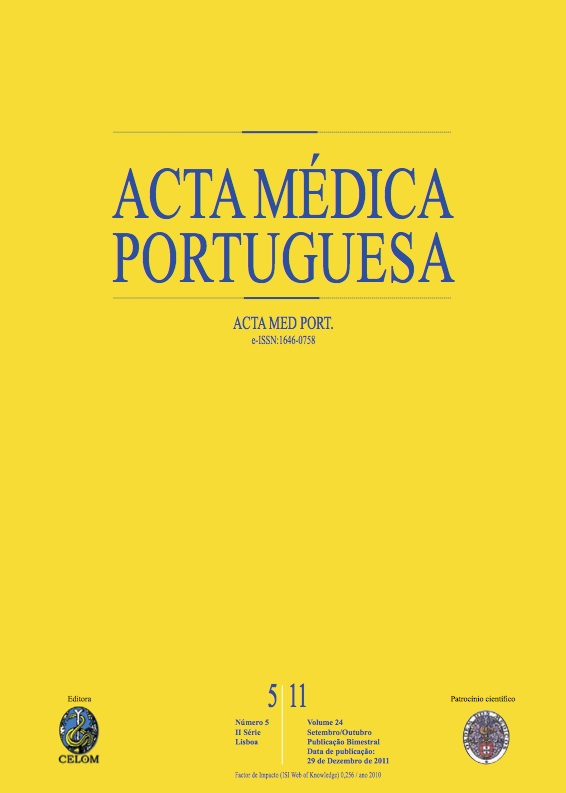Carcinoid tumors: echocardiographic contribution to the diagnosis.
DOI:
https://doi.org/10.20344/amp.499Abstract
Carcinoid tumors are rare, most commonly originating from the neuroendocrine cells in the gastrointestinal tract. Carcinoid syndrome is characterized by flushing, diarrhea, and bronchospasm. Half of these patients have carcinoid heart disease, affecting the right side of the heart, causing tricuspid and pulmonary regurgitation and stenosis and subsequently right heart failure.73-year-old female was admitted with heart failure associated with episodes of diarrhea and flushing. The echocardiogram showed typical characteristics of carcinoid heart diasease. The CT scan of abdomen showed a small bowel mass. The 24-hour urine 5-hydroxyindoleacetic acid (5HIAA) and indium-111-pentetreotide scintigraphy confirmed the diagnosis. The patient was treated with furosemide, warfarine, digoxin and octreotide and there was clinical improvement.The echocardiogram was very useful, establishing the provisory diagnosis of a rare disease based on pathognomonic echocardiographic features.Downloads
Downloads
How to Cite
Issue
Section
License
All the articles published in the AMP are open access and comply with the requirements of funding agencies or academic institutions. The AMP is governed by the terms of the Creative Commons ‘Attribution – Non-Commercial Use - (CC-BY-NC)’ license, regarding the use by third parties.
It is the author’s responsibility to obtain approval for the reproduction of figures, tables, etc. from other publications.
Upon acceptance of an article for publication, the authors will be asked to complete the ICMJE “Copyright Liability and Copyright Sharing Statement “(http://www.actamedicaportuguesa.com/info/AMP-NormasPublicacao.pdf) and the “Declaration of Potential Conflicts of Interest” (http:// www.icmje.org/conflicts-of-interest). An e-mail will be sent to the corresponding author to acknowledge receipt of the manuscript.
After publication, the authors are authorised to make their articles available in repositories of their institutions of origin, as long as they always mention where they were published and according to the Creative Commons license.









